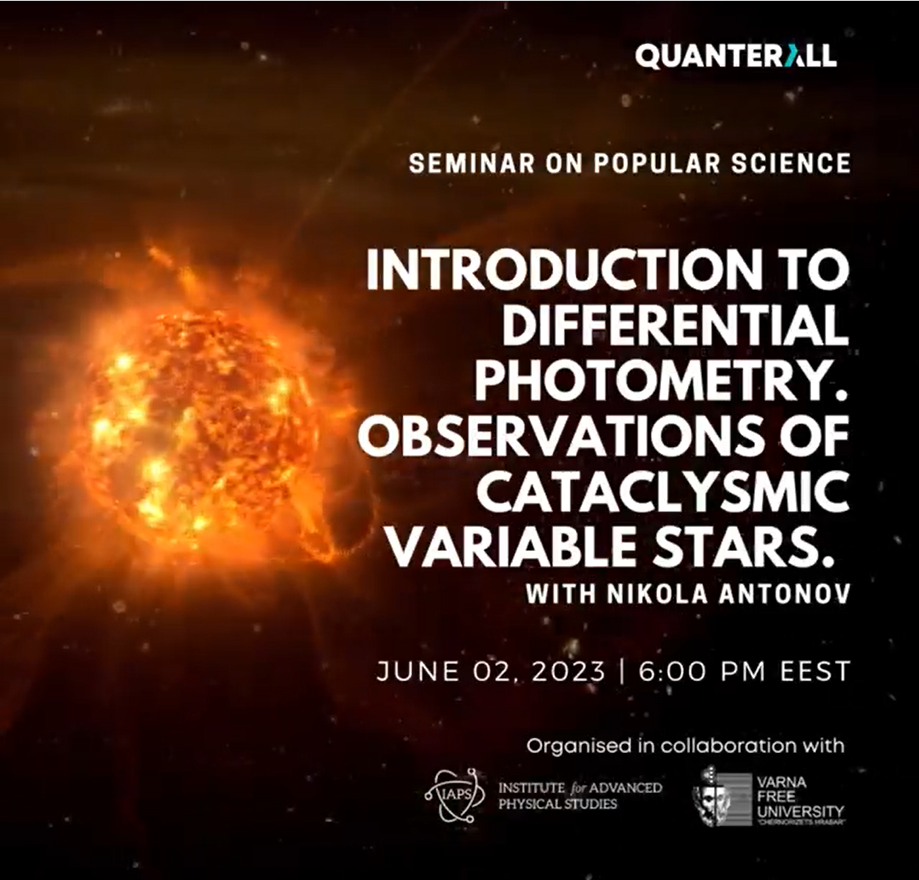Introduction to differential photometry. Observations of cataclysmic variable stars.

Time: June 2nd, 2023, Friday, 18:00
Lecturer: Nikola Antonov
Meeting: Sofia Tech Park, Laboratory Complex, First Floor and online @ https://meet.google.com/pwu-ebjo-xoi
Recording: https://youtu.be/KsXnsGR4hso
Variable star astronomy studies some of the most important objects in the Universe - stars. Stars are the main driver of cosmic evolution, especially in the creation of elements heavier than the hydrogen and helium that make up us and the world we live in. Studies of variable stars are important because they provide information about the properties of stars, such as mass, radius, luminosity, temperature, internal and external structure, composition, and evolution. Some of this information would be difficult or impossible to obtain other than by observing variable stars.
Variable stars must be observed systematically over decades to determine their long-term behavior. Professional astronomers have neither the available time nor unlimited access to the telescopes needed to collect data on the brightness changes of thousands of variable stars. Amateur astronomers using visual methods, photographic, CCD/CMOS and DSLR cameras are making a real and extremely useful contribution to science by observing variable stars and submitting their observations to the AAVSO International Database (https://www.aavso.org/). These data are needed to analyze the behavior of variable stars, plan satellite observations, compare data from satellite and ground-based observations, and create theoretical computer models.
Nikola Antonov's talk is a brief introduction to the topic of variable stars in general, and to the ways in which we observe them, with an emphasis on the most common method, differential photometry. At the end of the talk, the speaker will share results from his recent photometric observations of the cataclysmic variable AM Her.
This event is part of the IAPS seminar on Popular Science and is organized jointly by the Institute for Advanced Physical Studies, Quanterall and Varna Free University.
